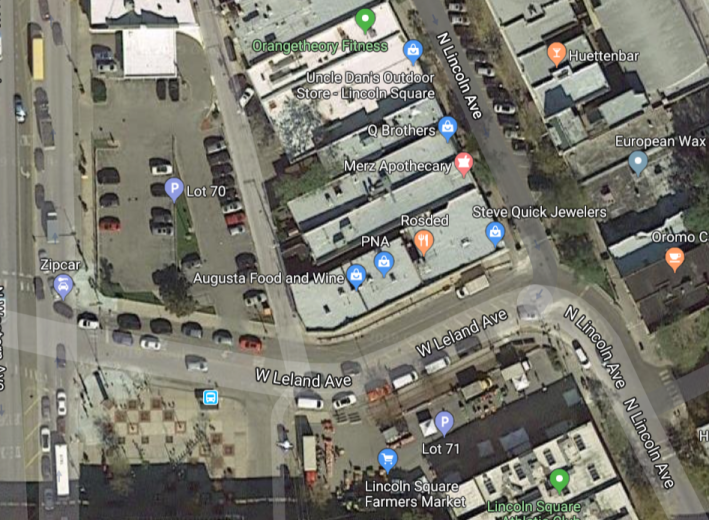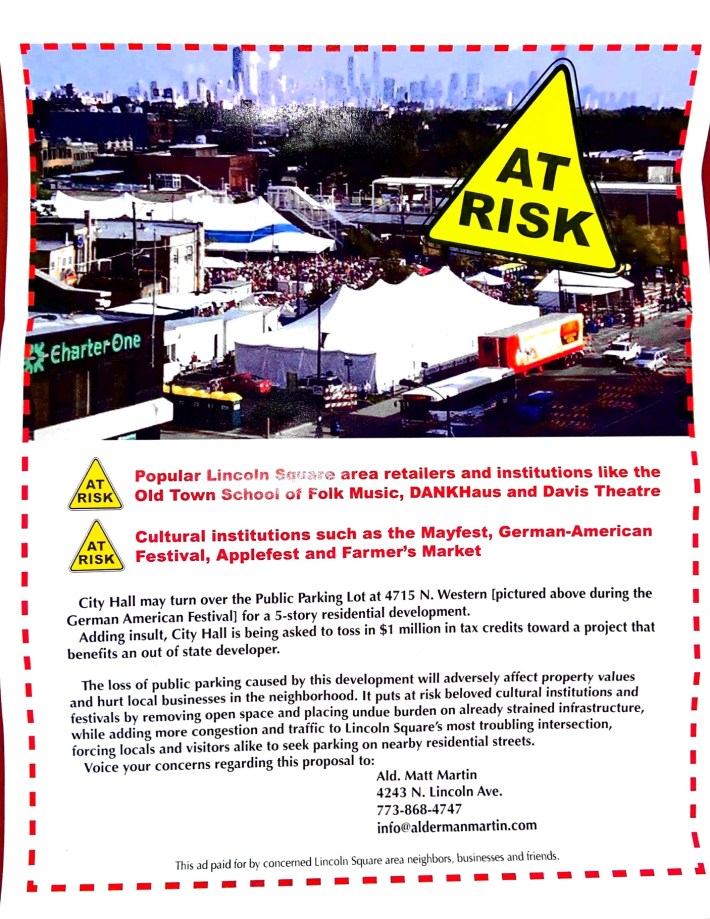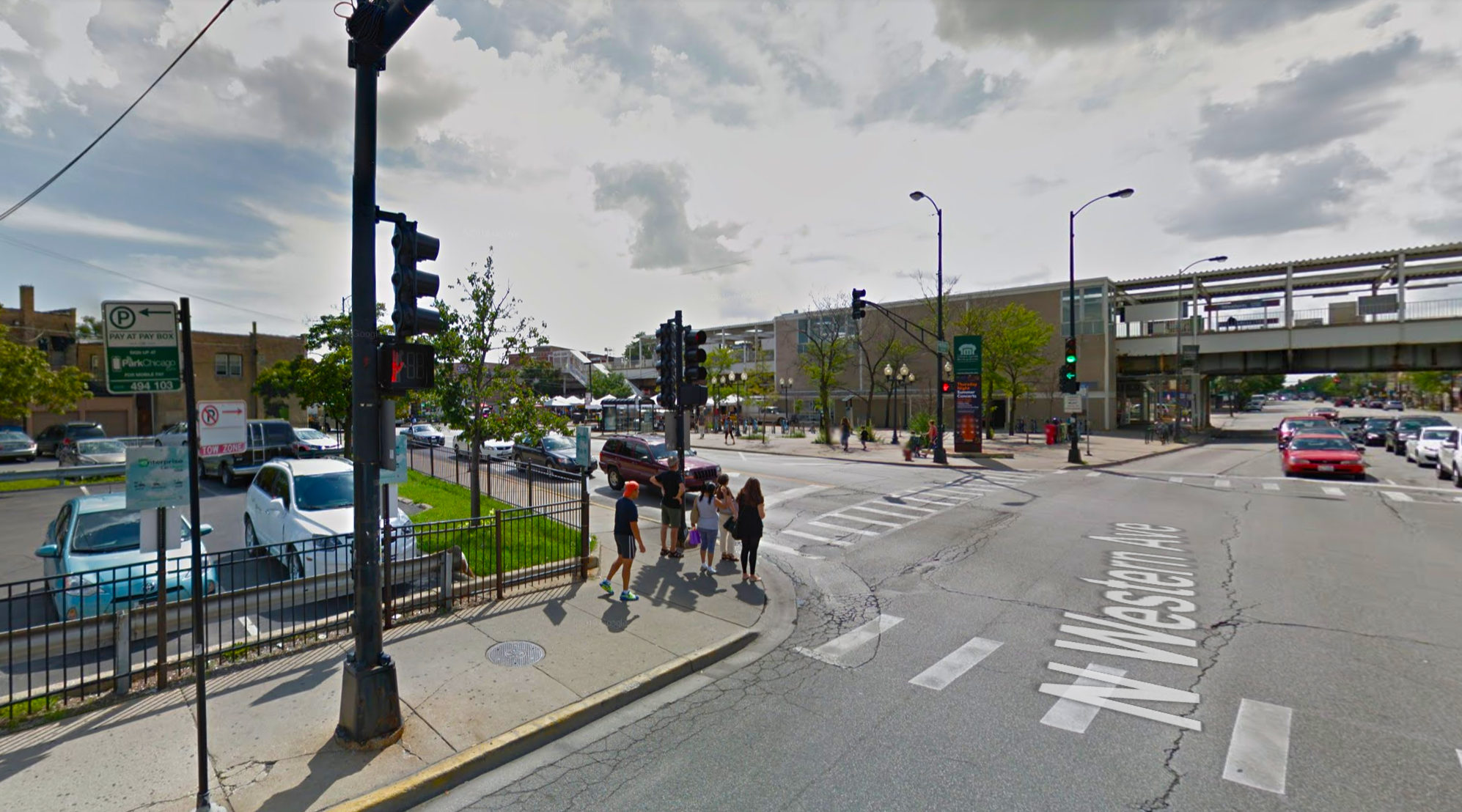A major reason Chicago is one of the most segregated cities in the U.S. is that new affordable housing has typically been concentrated in low-income areas, creating concentrated poverty. On the other hand, building affordable housing near rapid transit makes it easier for poor and working people to access jobs and education, which is a huge help in improving one's economic status.
Therefore, creating affordable housing in middle-class or more affluent neighborhoods, close to transit, is a great strategy to reduce segregation and economic inequality. The 100-percent affordable transit-oriented development recently approved in gentrifying Logan Square, replacing a city-owned parking lot next to the eponymous CTA station, is Chicago's flagship example. However, it faced fierce opposition from some neighbors, with worries about a parking crunch and increased traffic congestions being among their main (stated) concerns.
As reported by Block Club Chicago's Alex V. Hernandez, another 100-percent affordable housing development is proposed for a parking lot next to an 'L' stop, this time the Western Avenue Brown Line station in toney Lincoln Square. And, once again, some residents are panicking about losing car parking.
The nonprofit development and property management firm The Community Builders is proposing a 6-story-tall building with 42 one- and two-bedroom units for the Lincoln Square parking lot, located at 4715 North Western. Local alderman Matt Martin told me all of the units would be affordable, reserved for people who make 30 to 80 percent of the area mean income. There will also be first-floor retail. The lot is located just north of the station, at the northeast corner of Leland and Western avenues.

Because the land is so close to the 'L', under Chicago's TOD ordinance, the city's usual on-site parking requirements would be essentially waived for the new development, so in theory there could be zero off-street spots at the site. However, the Community Builders is proposing to build the same number of car spaces that currently exist, and only set aside a few of them for residents.
Arguably zero car parking is needed for such a transit-friendly site, which is also served by 24-hour bus routes on Western and Lawrence avenues. But, unlike the lightly-used lot that the Logan TOD is replacing (that 100-unit building will have only 22 car spaces), it appears that the metered Lincoln Square lot currently does get a fair amount of use by people driving to nearby shops and institutions like the DANK Haus German-American cultural center across the street, which has no on-site parking. (However, DankHAUS event attendees can use a nearby bank parking lot for free after bank hours.)
Of course many of those drivers could probably take transit, walk, or use ride-hail instead, but eliminating all of the spots might be a tough sell to the neighbors. One of Martin's assistants also said the city's hated parking meter contract requires that any metered spots be replaced.
However, 35th Ward alderman Carlos Ramirez-Rosa told me the city won't be required to replace the paid parking spots lost to the Logan Square affordable TOD. "It didn't wind up being a problem," he said. "We worked it out with the city." He added that measures related to meters in Chicago's 2020 budget, including raising meter prices and adding new metered spots in the West Loop are generally helping the city to compensate the parking concessionaire for revenue lost through the elimination of other metered spaces.
But even though all of the Lincoln Square spots will be replaced, some folks still aren't happy. Longtime resident Horst Siegel has put out error-filled fliers with the goal of building opposition to the project, claiming it's an existential threat to small businesses, the Old Town School of Folk Music, the Davis Theater, and the local festivals and farmers market that take place on another parking lot to the east of the station. He owns one of the buildings that houses nearby Merz Apothecary building.

“Leave the parking lot as it is," Siegel told Block Club. "People have to park. That’s what feeds the neighborhood retailers." Actually, it's people and their shopping dollars that keep local business owners afloat, and the new building would bring many dozens of new residents within a short walk the shops and institutions. The flier also argues that the building would generate traffic congestion and tax the existing infrastructure.
Fortunately, not everyone in the politically progressive neighborhood see things that way. Other residents told Hernandez that they think the development is a good idea, because the residents of the affordable units would be less likely to own cars than more affluent tenants, and instead get around by transit, which means there would be minimal impact on traffic.
Errors on the flier included misstating the height of the building and claiming that the public parking would be lost. Martin also said the flier's statement that "City Hall is being asked to toss in $1 million in tax credits" is premature. "My office hasn’t yet received a formal proposal, so there's still lots to iron out on the developer’s side, most notably financing," he told me.
Fortunately, after Hernandez told Siegel that the developer plans to replace all of the parking spots, Siegel said if that's the case he will drop his opposition. That's a relief, but this situation is just another example of how freaked out some people get when they think car parking is in jeopardy, even in a location with excellent transit access.






